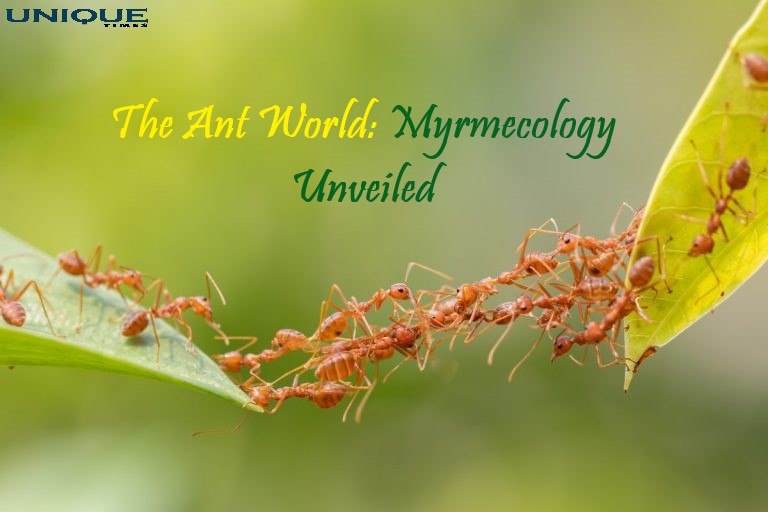The Ant World Revealed: Myrmecology and the Scientific Study of Ants

In the intricate tapestry of nature, ants play a pivotal role, creating thriving societies that have stood the test of time. Myrmecology, the scientific study of ants, unlocks the mysteries of these tiny yet extraordinary creatures. In this blog, we embark on a captivating journey into the world of ants, exploring the wonders of myrmecology, the intricacies of ant behavior, and the profound impact these remarkable insects have on our ecosystems.
Myrmecology Unveiled: Decoding the World of Ants
Myrmecology, derived from the Greek word “myrmex” meaning ant, is a specialized branch of entomology dedicated to understanding the life and behavior of ants. These tiny insects, often underestimated, showcase unparalleled organization and cooperation within their colonies.
Ant Colonies: Complex Societies
Ants are social insects that live in elaborate colonies, exhibiting a division of labor, communication, and intricate hierarchical systems. Myrmecologists study the interplay of ant behaviors, roles, and interactions within these complex societies.
Ant Diversity: A Myriad of Species
Ants boast an astonishing diversity, with over 12,000 known species and many more yet to be discovered. Myrmecologists play a crucial role in classifying and understanding the immense variety of ant species that inhabit diverse ecosystems across the globe.
Communication and Pheromones: The Language of Ants
Ants communicate using a sophisticated system of pheromones, chemical signals that transmit information to colony members. Myrmecologists study these chemical cues to decipher how ants coordinate tasks and respond to changing environmental conditions.
Foraging and Feeding: Ants as Ecological Engineers
Ants play a vital role as ecological engineers, influencing their habitats through foraging and feeding behaviors. Myrmecologists investigate the impact of ants on plant dispersal, soil quality, and nutrient cycling, shaping ecosystems in profound ways.
Ants and Agriculture: Nature’s Farmers
Certain ant species have evolved remarkable farming behaviors, cultivating fungi as a food source. Myrmecologists explore the intricate relationships between ants and fungi, uncovering nature’s sustainable agricultural practices.
Ants as Pests and Predators
While ants contribute significantly to ecosystem balance, some species can become pests or predators, impacting agriculture and ecosystems. Myrmecology helps us understand and manage ant populations to maintain ecological harmony.
Ants and Human Society
Ants have long captured human fascination, inspiring stories, myths, and even serving as metaphors for human behavior. Myrmecology bridges the gap between ants and human society, shedding light on the ecological, cultural, and economic importance of these insects.
Conservation and Biodiversity
Understanding ants and their roles in ecosystems is vital for conservation efforts. Myrmecologists contribute valuable insights into the conservation of ant diversity, recognizing the significance of these small but indispensable creatures.
Conclusion
As we delve into the world of myrmecology, we uncover the awe-inspiring complexities of ants and their profound impact on our world. From their intricate societies to their roles as ecological engineers and farmers, ants reveal their remarkable abilities. Myrmecologists passionately pursue knowledge about these tiny wonders, shedding light on the hidden secrets of ant behavior and their place in the greater ecological web. Let us celebrate the world of myrmecology, honoring the fascinating study of ants and the vital role they play in the delicate balance of nature.
Picture Courtesy: Google/images are subject to copyright








